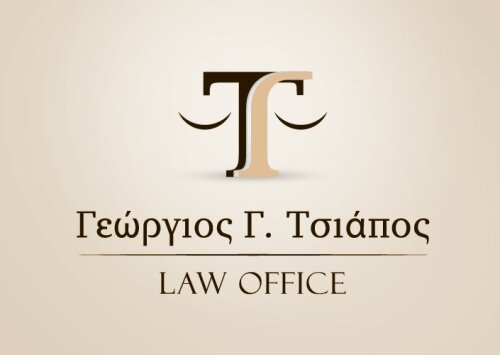Best Structured Finance Lawyers in Greece
Share your needs with us, get contacted by law firms.
Free. Takes 2 min.
Or refine your search by selecting a city:
List of the best lawyers in Greece
About Structured Finance Law in Greece
Structured finance refers to complex financial transactions designed to help companies or other entities raise capital and manage risk by pooling financial assets and creating new securities. In Greece, structured finance plays an important role in supporting investment, infrastructure projects, and corporate financing. Common structured finance instruments include securitizations, asset-backed securities, covered bonds, and project finance transactions. Greek law in this area has evolved, particularly since the financial crisis, to provide a clearer regulatory framework and to align with European Union directives.
Why You May Need a Lawyer
Structured finance transactions are intricate and must adhere to strict legal and regulatory requirements. You may need legal assistance in a variety of situations, including:
- Structuring securitization or asset-backed securities deals
- Advising on legal and regulatory compliance for financial institutions
- Negotiating terms in project finance or infrastructure finance arrangements
- Facilitating cross-border investments and ensuring alignment with both Greek and EU law
- Restructuring existing financial arrangements or debt portfolios
- Assessing and mitigating legal risks associated with complex collateral and guarantees
- Drafting and reviewing contracts or prospectuses
- Dealing with tax optimization and implications related to structured transactions
Due to the highly technical nature of structured finance, obtaining specialized legal advice is crucial for both institutional and individual investors, as well as for companies seeking to raise capital through structured products.
Local Laws Overview
Greek structured finance law is primarily influenced by both domestic legislation and European Union directives. Key areas include:
- The Securitization Law (Law 3156/2003), which provides the framework for asset securitization transactions in Greece
- Regulations on covered bonds, which align with EU standards
- Directives on capital markets adopted into Greek law, governing transparency, investor protection, and disclosure rules
- Bank of Greece regulations regarding eligibility criteria, capital requirements, and oversight
- Corporate and bankruptcy law provisions relevant to insolvency and restructuring in structured finance deals
- The influence of international financial reporting standards (IFRS), given their impact on how assets and liabilities are treated
Recent updates to Greek law aim to attract foreign investment, increase transparency, and facilitate cross-border finance transactions. However, local nuances and compliance requirements can still pose significant challenges.
Frequently Asked Questions
What is structured finance?
Structured finance refers to tailored financial instruments and transactions that pool assets and redistribute risk, making it easier for entities to raise funds while managing exposure to defaults or other financial risks.
Can foreign investors participate in Greek structured finance deals?
Yes, foreign investors can participate, provided they comply with both Greek and EU law. Legal guidance is strongly recommended to navigate regulatory requirements and tax considerations.
What are the common types of securitization in Greece?
The most common types are mortgage-backed securities, loan portfolio securitizations, and receivables securitizations such as those involving trade receivables or leasing deals.
Do I need regulatory approval for a securitization transaction?
Most securitizations in Greece require notification to or approval by the Bank of Greece or the Hellenic Capital Market Commission, depending on the specifics of the transaction.
How are investors protected in structured finance deals?
Greek and EU laws impose robust disclosure, transparency, and risk retention requirements to ensure investor protection. These include mandatory reporting and specific provisions on information accessible to investors.
What role does the Bank of Greece play in structured finance?
The Bank of Greece supervises regulated financial institutions, reviews documentation, monitors compliance, and issues guidelines that shape the market’s development.
Are there specific tax incentives for structured finance in Greece?
Yes, certain structured products like securitizations benefit from favorable tax treatment, but this depends on proper transaction structuring. Legal and tax advice is necessary to maximize available incentives.
How are cross-border structured finance transactions handled?
These transactions must comply with both Greek law and relevant EU frameworks, including data protection regulations, anti-money laundering requirements, and cross-border investment rules.
What are the risks involved in structured finance?
Risks include credit risk, legal and regulatory compliance risk, interest rate fluctuations, and operational challenges in the underlying assets. Legal advice can help identify and mitigate these risks.
How can a lawyer help in a distressed or default situation?
Lawyers can assist in restructuring, negotiating with creditors, enforcing security interests, and navigating insolvency or bankruptcy proceedings if needed.
Additional Resources
Individuals and organizations seeking further information or support in Greece can turn to:
- The Hellenic Capital Market Commission - oversees securities offerings and approvals
- Bank of Greece - regulates financial institutions and issues pertinent guidelines
- Chamber of Commerce and Industry - provides business and legal resources
- Professional associations such as the Hellenic Bank Association for market updates
- Legal directories and the Athens Bar Association for finding specialist lawyers
- European Central Bank and European Securities and Markets Authority (ESMA) - for EU-wide regulations applicable in Greece
Next Steps
If you require legal assistance with structured finance in Greece, consider the following steps:
- Define your objectives and outline the type of transaction or issue you are facing
- Gather all relevant documents, such as contracts, financial statements, or correspondence
- Consult with a lawyer who specializes in structured finance or financial regulation
- Request an initial consultation to assess your situation and outline potential solutions
- Discuss the scope of legal services, fees, and expected timelines
- Stay informed about both local and EU regulatory updates that may impact your transaction
Proper legal guidance is essential to navigate the complexities of structured finance in Greece. Taking early action and engaging a knowledgeable professional can protect your interests and help you achieve your financial goals.
Lawzana helps you find the best lawyers and law firms in Greece through a curated and pre-screened list of qualified legal professionals. Our platform offers rankings and detailed profiles of attorneys and law firms, allowing you to compare based on practice areas, including Structured Finance, experience, and client feedback.
Each profile includes a description of the firm's areas of practice, client reviews, team members and partners, year of establishment, spoken languages, office locations, contact information, social media presence, and any published articles or resources. Most firms on our platform speak English and are experienced in both local and international legal matters.
Get a quote from top-rated law firms in Greece — quickly, securely, and without unnecessary hassle.
Disclaimer:
The information provided on this page is for general informational purposes only and does not constitute legal advice. While we strive to ensure the accuracy and relevance of the content, legal information may change over time, and interpretations of the law can vary. You should always consult with a qualified legal professional for advice specific to your situation.
We disclaim all liability for actions taken or not taken based on the content of this page. If you believe any information is incorrect or outdated, please contact us, and we will review and update it where appropriate.
Browse structured finance law firms by city in Greece
Refine your search by selecting a city.
















